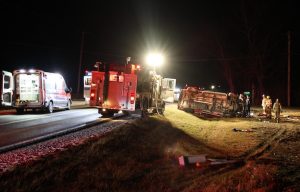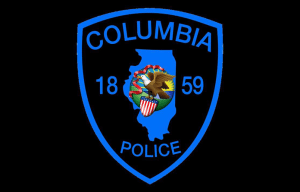Monroe County sees first wave of rescue funds
As municipalities and counties across Illinois are concluding Local Coronavirus Urgent Remediation Emergency reimbursement business, Monroe County is beginning to set its sights on allocating over $6 million received through the American Rescue Plan.
Unlike CARES Act reimbursement funding, which funded Local CURE, the American Rescue Plan does not have to be used for only COVID-19-related costs.
Monroe County received its first installment of $3,363,915.50 on June 7 and will receive a second installment of the same amount in June 2022, bringing the grand total of funds received to $6,727,831.
Monroe County Treasurer Kevin Koenigstein said county commissioners are charged with dividing up these funds among county departments and its municipalities.
“Currently each department within the county is compiling a list of what (they) want to spend the money on to promote recovery and get things fixed up,” Koenigstein said, later providing some examples. “For instance, the sheriff is looking at a new office building, the health department and highway department are looking at storage facilities south of Waterloo, the county clerk is looking at new election equipment and (there are) various other laundry lists within the county – including the levee districts in Monroe County. We’re looking at some infrastructure improvements to improve water drainage.”
Koenigstein said he expects the county commissioners to start the decision-making process later in July.
The commissioners have a tall order ahead of them.
“Currently the amount of requests have exceeded the amount of funding by a factor of two, with more on the way,” Koenigstein remarked.
According to Koenigstein, American Rescue Plan funding must be spent by 2024. If that money is not yet spent, it needs to be reserved for projects which will be completed by 2026.
The Local CURE Program provided communities with reimbursements for eligible expenses incurred in 2020 related to the coronavirus. Koenigstein said that for many communities, reimbursements included costs related to personal protection equipment, facility remodeling for COVID-19 safety and/or overtime related to the pandemic.
He said many expenses eligible for reimbursement are not those one would automatically think to be direct results of the pandemic.
“If you have an ambulance worker who gets the coronavirus, now other people have to pick up his shift, (requiring) overtime pay from a department standpoint, and sick pay,” Koenigstein explained. “Those are things you don’t think about, but when two people get coronavirus it really affects the rest of the department.”
According to a statement issued by the Illinois Department of Commerce & Economic Opportunity, local governments had to submit a survey by Dec. 1 indicating how they anticipated using allotted Local CURE Program funds. Expenditures submitted for approval must have been acquired between March 1, and Dec. 30, 2020. However, the Illinois Government website said this was amended to include costs extending into Dec. 31, 2021.
On a federal funding level, Monroe County received $499,583 for the reimbursement of Local CURE expenses, which Koenigstein said went to the general county; $69,002 for the Coronavirus Relief Fund, which went toward reimbursing the health department; $199,263 to reimburse COVID-19 contact tracing; and $732,115 in Provider Relief Funds for Nursing Homes, which helped reimburse COVID-related expenses at the county-owned Oak Hill senior living facility.
Monroe County also received $199,263 from the state to help reimburse costs of contact tracing, which is still an ongoing expense.
Areas of reimbursement for 2020 COVID CURES Act included EMS PPE, disinfectant equipment for the sheriff’s department and overtime pay for EMT personnel, corrections personnel and deputies.
The Illinois Department of Commerce and Economic Opportunity dispersed Local CURE Program funds to Columbia and Waterloo.
It provided Columbia with $48,338 for “payroll for public health and safety employees.”
Waterloo received $448,585 for the same reason. Waterloo budget officer Shawn Kennedy said because these funds were not originally budgeted, Waterloo used them for body and in-car cameras for the Waterloo Police Department.
On Friday, Illinois Gov. J.B. Pritzker and the Illinois Department of Commerce and Economic Opportunity announced they were investing $9 million in the community navigator outreach program. This program hopes to help small businesses fully utilize economic recovery grant programs, such as the American Rescue Plan Act. This comes as the state gets ready to launch the $300 million Back to Business small business recovery program.
The program is set to take effect later in July.
“To ensure those dollars reach into the communities hit hardest by the pandemic, we’re directing investments to 13 trusted community partners who will work across their networks help ensure that businesses regardless of size, type, or location receive the support needed to build back from the pandemic,” Pritzker said in a statement. “With this funding, we are doubling down on an equity driven approach that will ensure hard hit businesses in minority and downstate communities are represented in these economic recovery programs.”
One of the 13 regional partners trained by the DCEO is the Greater Egypt Regional Planning and Development Commission, which will serve Monroe County, among many others.
For more information, click here.






